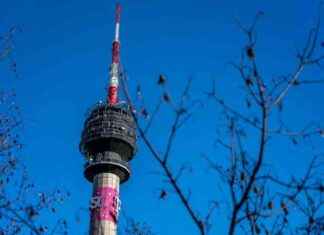TRENTON — Gov. Chris Christie on Friday took action Friday that guarantees shoppers patronizing many businesses in cities across the state will pay twice the sales tax they’d been charged for about three decades.
The sales tax had long been cut in half for shoppers patronizing businesses participating in the Urban Enterprise Program, which was designed to boost commercial activity in economically depressed areas.
The tax actually went up to the full 6.875 percent state rate on Jan. 1 in five cities — Bridgeton, Camden, Newark, Plainfield, and Trenton — when Christie did not act on a bill that would have extended the program two years.
On Friday, he conditionally vetoed that bill, ensuring that the sales tax will not be cut back in those cities.
Christie said the UEZ program faced “apathetic participation” and delivered a “devastating impact on state revenues without any demonstrable benefit” to the cities.
“The alleged need for, and merits of, the program urged by its supporters is belied by the fact that only 18.3 percent of qualified businesses in UEZs participate in the program,” Christie said in his veto. “I cannot condone this bill’s further extension of this wasteful and failed program.”
His rejection was met with swift disapproval from the bill’s advocates.
12 things that could help Christie
“I’m extremely disappointed,” said Assemblyman Reed Gusciora (D-Mercer), who represents parts of Trenton.
He referred to Christie’s recent commitment to invest in Trenton as nothing but “empty promises.”
“There’s over 100 businesses (in Trenton) that rely on the UEZ,” Gusciora said, citing a business in his district, Griffith Electric.
“Contractors from Pennsylvania and all around the county go to Griffith Electric strictly for the sales tax cut,” Gusciora said. “That’s a bottom line for many contractors.”
A spokesperson for the company didn’t immediately respond to Christie’s veto.
The governor said in his statement New Jersey faces to lose $40 million in “retail sales tax alone” if the UEZ was extended for two years, which the bill (S2670/A4189) would have done.
Christie’s rejection is likely to have a ripple effect for other urban areas.
Businesses in other cities could face the same situation in coming years unless Christie and lawmakers reach an agreement on the program on the brink of extinction.
For years, the UEZ has given tax incentives to businesses in dozens of urban areas to boost lagging local economies. Shops and companies in the designated zones get financial assistance, subsidized unemployment insurance and energy sales tax exemptions.
They’ve also been allowed to level only half of the state’s sales tax on their products to help attract customers.
But the program expired at the beginning of the year for the five cities that signed on first, in 1986.
The state informed the businesses there that they were no longer allowed to offer a 3.5 percent reduced sales tax and were now required to levy the state’s full 6.875 percent sales tax. The latter is the new state rate — down from 7 percent — which took effect Jan. 1.
There are 32 zones in 37 municipalities — a swath that includes nearly 7,000 businesses across the state.
Last year, Christie conditionally vetoed a proposed 10-year expansion of the program, saying the UEZ is a “failed 30-year experiment” that has cost the state revenue. Instead, the Republican governor called for a study to find an alternative way to help cities.
NJ Advance Media staff writer Brent Johnson contributed to this report.
Matt Arco may be reached at marco@njadvancemedia.com. Follow him on Twitter @MatthewArco or on Facebook.
Our editors found this article on this site using Google and regenerated it for our readers.







